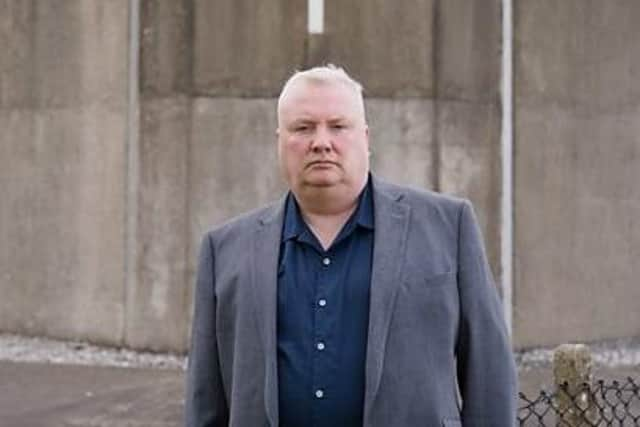Ruth Dudley Edwards: His latest TV series, 'Jailed: Inside Maghaberry Prison', is more evidence that Stephen Nolan is an outstanding journalist and a national treasure


I haven’t had occasion to visit many prisons, but like some other journalists who sought to learn the truth about the IRA, I went to Maghaberry several times during the mid 1990s to talk with the repentant terrorist Seán O'Callaghan.
Because the Provisional leadership had learned he had been a spy for the Gardai and their British colleagues, the IRA wanted to kill him, as did loyalists who still saw him as the enemy, so by then he was in an isolation unit and I saw little of the prison other than the van that drove me through the gates and the officers who took me through security.
Advertisement
Hide AdAdvertisement
Hide AdBut Sean had made friends wherever he went so I learned much from him then and later about prisoners of all persuasions and the prison officers — for whom he mostly had great respect.
Like Seán, Nolan is fascinated by other people’s stories, whatever they are, and he’s a seriously good listener, which is what makes him a superb interviewer and this such a compelling series. Far too many journalists these days see the people they're interviewing as opponents; they are forever waiting for the triumph of the “gotcha” moment. But Nolan’s listens seriously to the testimonies of murderers and thieves as well as prison staff and the reforming governor. He wants to know why and how the prisoners got there and if there’s any hope they can change.
The deal done with the prison service was that he and his team would have unprecedented access to the prison, that the prisoners would not be handpicked, that he would choose from those who wished to talk to him and be frank with them.
From early in the first episode, when he begins walking through the prison estate experiencing a cacophony of insults through cell windows which are mostly to do with him being fat, he shows his style. Nolan seems pleasingly incapable of condescension: he laughs at himself and good-naturedly swaps banter with his abusers. One of the reasons I admire him is because his humanity precludes any snobbery. This is a human being in front of him in the small cell, and he wants to know is he a liar or a truth-teller, what make him tick and what his chances are. When he's told that one of the people shouting out the windows is a rapper, he listens to the rather powerful rap (sample: “The human mental health, it is cruel, it can be stealthy/we should listen to the doctors, that is why they are wealthy/ I'm seeking a diagnosis it could possibly be psychosis…”)
Advertisement
Hide AdAdvertisement
Hide AdI hear many criticisms of Nolan and I always defend him vigorously as an outstanding journalist of physical and moral courage, insatiable curiosity and a passion for truth.
It’s a shocking reflection on Northern Ireland’s politicians that so few of them defend him against the enemies of free speech who would love to see him sacked and boycott him if he causes them embarrassment.
For the record, I stopped appearing on William Crawley's Talkback quite a while back because several times I felt set-up against shouty people with whom it was impossible to have a rational disagreement. But I've been on Nolan’s show occasionally and always found him and his production team straight dealers.
Nolan attracted great support generally in the UK two years ago when with his producer, David Thompson, in the 10-part podcast Nolan Investigates: Stonewall, he took on the vicious extremist wing of trans activism that encourages children to get on the pathway from puberty blockers to major surgery.
Advertisement
Hide AdAdvertisement
Hide AdOne of my favourite comments came from a contributor to Christian Today who rejoiced that “despite its current woke progressive agenda”, the BBC “still has some excellent journalists who are not afraid to question and do some actual journalism. One of these is Stephen Nolan from Northern Ireland.”
The guy is a national treasure.
It is in all our interests that prisons make people better rather than worse. This series is a brilliant contribution to understanding who prisoners are and how they might be helped to contribute to society.
l The full series of Jailed: Inside Maghaberry Prison is available on the BBC iPlayer.